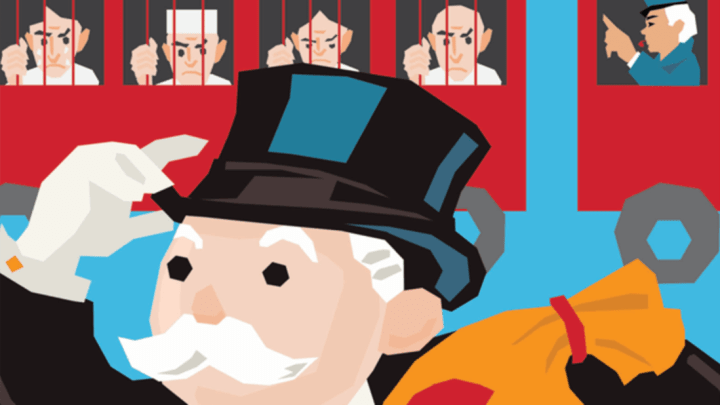On August 8, 1963, a Royal Mail train puffed toward London carrying £2.6 million in cash. It was the dead of night, and the old tattered bank notes were destined for a government furnace, where they’d be permanently taken out of circulation. But 15 crooks hiding in the darkness had different plans. Wielding crowbars, the thieves held up the train. The criminals worked quickly, tossing 120 sacks of dough off the train and onto a getaway truck. When the heist was complete, the men fled with their convoy to a nearby farmhouse and did what any group of bored bandits would do to celebrate the largest cash heist in history: They played Monopoly.
Days later, the criminals had to abandon the farmhouse to evade police, who’d picked up their trail. When Scotland Yard got to the hideout, they found 20 empty mailbags, sleeping bags, and bank note wrappers—and a Monopoly board covered in fingerprints. (Apparently, they’d been playing with real money.) Those prints, along with more found on a ketchup bottle, led to some arrests the very next day. Eventually, all 15 robbers landed in the slammer, learning that “get out of jail free” cards are decidedly hard to find in the real world.
